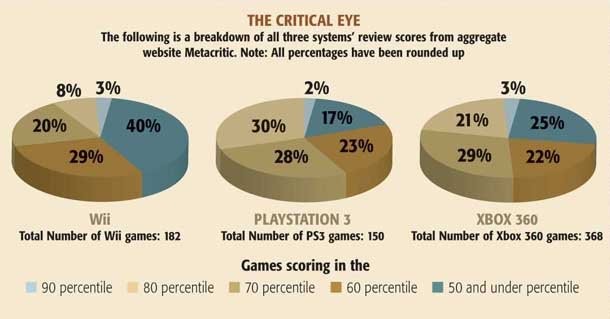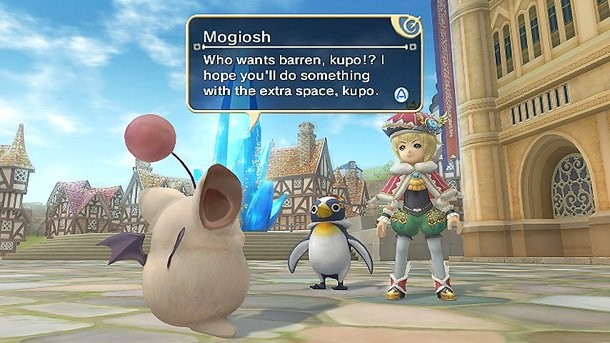Nintendo’s Software Problem - Is the Wii Buried Under Shovelware?
There’s no denying that Nintendo’s Wii console is hot. So hot that it can’t be manufactured fast enough. So hot that it’s penetrated the mass market. Now that millions of people and families have bought the system – including plenty of new gamers who might not know how to avoid some of the crap being released for the platform – how come there is a dearth of quality games for the console? The Wii may be popular, but is it attracting shovelware just looking to cash in on its time in the limelight?
Rooted in Tradition
While third-party developers have praised the Wii as being easy to develop for, this and the fact that many Wii owners are casual or first-time gamers might have the unwanted residual effect of cheaply made games being rushed to market strictly to take advantage of consumers. As cynical as this may sound, we’ve seen this before when the Atari 2600 defined home console gaming in the early ‘80s. That situation led to the industry crash of 1983, when the market bottomed out due to a flood of poor software.
Nintendo systems have, of course, always been home to triple-A first-party titles that leverage the company’s historic characters and gameplay philosophies. However, third-parties have typically had less success on Nintendo’s platforms. Even though the Wii is selling better than its home console predecessors, third-party software is not benefitting as much from the platform’s popularity.
Nintendo has traditionally not had the greatest relationship with its third-party software partners. Whether it was Nintendo’s decision to stick with the cartridge format for the N64 while the PlayStation adopted the CD-ROM or the notorious lack of support from the company in other areas (a developer once told us that Nintendo would not distribute blank GameCube proprietary discs. Instead, it made companies arrange their own bulk shipping from Japan), it’s clear that Nintendo is always in the driver’s seat.
Global Star's Carnival Games has become a surprise hit for the Wii
Bottom Feeding
This pattern is continuing with the Wii, at least in the software department. Looking at the NPD monthly sales chart for the past year (excluding Wii Play, which comes with a Wii remote), Nintendo’s first-party offerings do very well for the system, with games like The Legend of Zelda: Twilight Princess, Mario Party 8, Super Mario Galaxy, and Metroid Prime 3: Corruption spending extended time in the NPD top 20. Third parties, however, do not fare as well. While more third-party games placed in the top 20 for the year period (11 third-party games versus nine for Nintendo), Nintendo almost had as many top 20 titles as all the third-party publishers combined – and Nintendo titles consistently ranked higher than other games. The Wii’s third-party support does not compare to either the Xbox 360 or PlayStation 3 [see charts below]. Moreover, the majority of those Wii top 20 third-party titles were hits for all the systems, such as Madden NFL 09, Guitar Hero III, and Resident Evil 4.
Sales numbers aside, what’s more troubling is the overall lack of quality third-party software. When comparing the review scores given to all Wii titles by aggregate score website Metacritic, the system has an abnormally high number of games scoring in the lower half of the rating scale. Out of the 182 Wii games listed at the time of this writing, 74 of them – or 40 percent – scored 50 or lower out of 100. Xbox 360 had 25 percent and PS3 had 17 percent.
Not surprisingly, of the five titles that have scored a 90 or over, only one – Capcom’s Resident Evil 4 – is not a Nintendo game. Furthermore, both the Xbox 360 and PS3 chart noticeably more titles in the 80th percentile, which is another indicator of quality support of a console.
The Missing Link
There are many possible reasons for the apparent lack of good games for the Wii – one of which may be the fact that, according to industry sources, Nintendo does not have a concept approval phase for third-party games. Concept approval is a process in place at both Microsoft and Sony where the console maker green-lights a project after checking to make sure it fits into their general plan. This not only serves as an early eyeball test for games, but the console makers – except Nintendo, apparently – use it to make sure that the game isn’t jumping into an over-saturated genre on the system. Finally, concept approval is important because it serves as a check against the final submission build to test how closely the final product adheres to the proposed concept. We asked Nintendo about this process, but the company declined to comment.
While there are a number of reasons that bad games get made, Nintendo’s lack of a concept approval process would seem to suggest that the Wii is missing that initial bulwark against the tide of shovelware. And, if the Metacritic scores are anything to go by, the absence does not appear to be doing the system any favors.
“The benefit of concept approval,” said one anonymous developer with experience working on Wii projects, ”is that you have a juried pool of stuff. You have a reasonable guarantee that someone who’s not crazy has looked at this and said, ‘Yes, this is plausibly fun.’”
Perhaps more importantly, there are times that third parties are consciously held back by Nintendo. For instance, the company initially restricted third parties in the use of features like Miis in Wii games and other initiatives utilizing the console, although that is slowly changing. In general, Nintendo does not like to let other companies introduce elements that utilize unique system features before Nintendo does. “They don’t even tell you ‘no,’” says the anonymous developer. “They tell you the [approval] documentation is forthcoming and they pick a date for that documentation to be delivered that is always after your release date.”
The Way Forward?
“It’s not Nintendo’s fault that the games from third parties aren’t selling as well, in my opinion,” says Evan Wilson, analyst for industry research firm Pacific Crest. While Wilson agrees that the Wii software catalog needs more good games versus bad, he’s not so sure that Nintendo is the one standing in the way. “These games are very simple. We need to explore new game mechanics. That’s the piece of innovation third parties are lacking in Wii games overall.”
Wilson asserts that the casual audience the Wii has unlocked makes the traditional landscape by which we judge a console and its software different. Certainly it’s not ideal that the Wii has so many bad games, but Wilson believes that eventually non-profitability will weed out bad games. Until then, the system has at least built out a broad catalogue of software (which, in contrast to other Nintendo home consoles, is somewhat of a luxury in and of itself). In the short term, this is not an ideal situation, but one that casual fans – who don’t buy as many games or pay attention to Metacritic or reviews – might not notice.
WiiWare on the system, like Square Enix's Final Fantasy Crystal
Chronicles - My Life as a King could tap innovation from unlikely
sources. Or it could spawn more junk for the system.
In this light, Nintendo’s lack of an approval process serves both to increase the system’s catalogue of software and as a way to encourage developers. “If they did have a very strict concept approval phase, I think you’d have developers crowing about Nintendo being unflexible to work with. I don’t think you can have it both ways,” comments Wilson.
The future that Wilson envisions for the system is not only one where the console and its fans are serviced with plenty of good games, but also where casual fans become more attuned to what separates the good games from the bad. He says it’s possible that the Wii does what the PS2 did late in its life, which is turn a vast number of casual fans into hardcore ones.
In this way of thinking, the Wii’s sales numbers are more important in influencing the creation of games than Nintendo’s relationship with publishers. Wilson even speculates that if this change comes to pass for the console, Nintendo could conceivably turn around and mix casual and hardcore audiences with its next console. Joining both factions under the banner of a single platform is something that he’s not sure the other systems are in a position to do at the moment. But for the Wii it first must start with software – as it does for any console.
Quick Facts
Super Smash Bros Brawl has already sold 4.85
million units in the U.S. and Japan. The Wii console itself has sold
24.5 million units worldwide since its release
Guitar Hero III: Legends of Rock sold better on Wii (239,600) than on the 360 (182,700) in the month of January
Number of Wii games scoring 50 or under on Metacritic: 74 out of 182. Number of PS3 games in the same category: 26 out of 150
Wii
Ware on the system, like Square Enix’s Final Fantasy: Crystal
Chronicles – My Life as a King could tap innovation from unlikely
sources. Or it could spawn more junk for the system

Get the Game Informer Print Edition!
Explore your favorite games in premium print format, delivered to your door.
- 10 issues per year
- Only $4.80 per issue
- Full digital magazine archive access
- Since 1991










